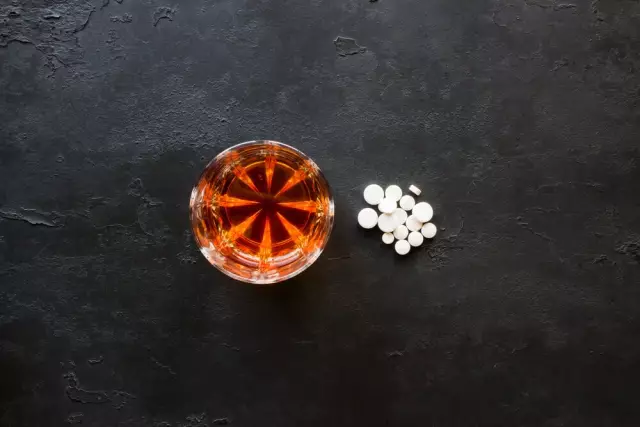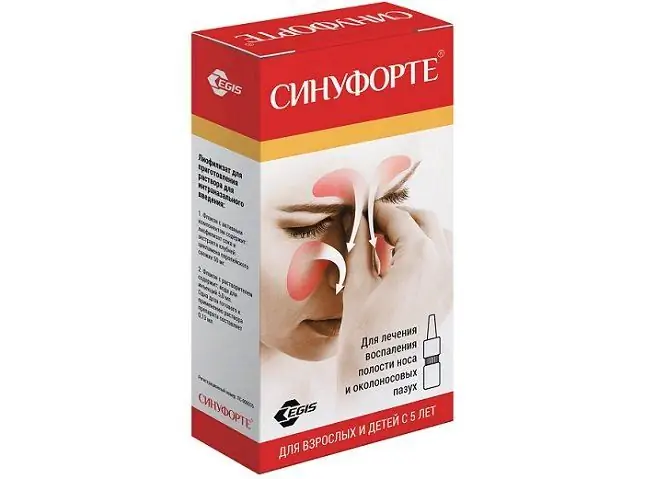- Author Rachel Wainwright wainwright@abchealthonline.com.
- Public 2023-12-15 07:39.
- Last modified 2025-11-02 20:14.
5 dangerous drug combinations
Everyone knows that medicines must be used in accordance with very strict rules. Information about the route of administration, possible dosages and other necessary information is usually contained in the instructions included in the package of the drug. Unfortunately, many get acquainted with such documents superficially, and do not pay attention to the section describing the compatibility of the drug with other drugs. This approach is fundamentally wrong, because some combinations of drugs can cause significant harm to health. We will talk about them in the article.

Source: depositphotos.com
Antihistamines and antitussives
For colds, taking cough suppressants is considered natural, and we often buy them at the pharmacy without a doctor's prescription. They usually contain components with a sedative effect. Most antihistamines (antiallergic) drugs have the same properties.
When taking antihistamines and antitussive drugs together, a person begins to experience drowsiness, his ability to concentrate worsens, and reactions slow down. If, at the same time, he is engaged in activities associated with sources of increased danger (for example, driving a car, working on a machine tool), there is a risk of getting into an emergency.
Antidepressants and NSAIDs
Medicines of the group of non-steroidal anti-inflammatory drugs (NSAIDs), which have an analgesic and antipyretic effect, are included in every home medicine cabinet. Although they are not safe at all, they are sold over the counter at the pharmacy; it is considered normal to use them without expert supervision. Meanwhile, NSAIDs significantly affect the composition of the blood: with their regular intake, its coagulability worsens. They also irritate the mucous membrane of the digestive tract, causing inflammation in it with prolonged use. As a result, the risk of gastrointestinal bleeding increases sixfold.
Unlike NSAIDs, antidepressants are unlikely to be used out of control: they cannot be obtained without a doctor's prescription. Patients should be aware that their joint administration with NSAIDs significantly reduces blood viscosity, dramatically increases bleeding, and therefore there is a serious health hazard.
Aspirin and anticoagulants
Anticoagulants (drugs intended for blood thinning) are prescribed for a tendency to thrombosis, varicose veins, hemorrhoids, myocardial infarction, ischemic stroke, coronary heart disease, heart rhythm disturbances, obliterating endarteritis and many other pathologies.
Aspirin, which also has the ability to increase blood flow, is one of the most popular drugs. The parallel use of blood thinning anticoagulants and acetylsalicylic acid preparations with the same effect can lead to bleeding, including latent ones.
Sedatives and pain relievers
Anxiety-reducing drugs have a side effect of lowering your heart rate and breathing. Pain relievers with opioid components (such as morphine or codeine) work similarly. Extreme caution should be exercised when taking these two types of medication at the same time, as exceeding the dosage can result in death from cardiac arrest.
Paracetamol and products containing codeine
Paracetamol is one of the most popular pain relievers and antipyretic drugs. Not everyone knows that it cannot be used with codeine-containing drugs. This combination is extremely toxic to the liver. It was found that in people who used codeine in parallel with paracetamol, liver failure develops in 63% of cases, moreover, very quickly.
To avoid the troubles associated with taking poorly compatible drugs, you must:
- inform your doctor about all medicines that you use;
- carefully study the instructions for all newly prescribed drugs;
- save all instructions for medicines (it is better to create a special folder for this) so that you can clarify important nuances at any moment;
- do not start taking medications (especially their combinations) without coordinating it with your doctor;
- do not violate the dosage prescribed by the specialist.
YouTube video related to the article:

Maria Kulkes Medical journalist About the author
Education: First Moscow State Medical University named after I. M. Sechenov, specialty "General Medicine".
Found a mistake in the text? Select it and press Ctrl + Enter.






